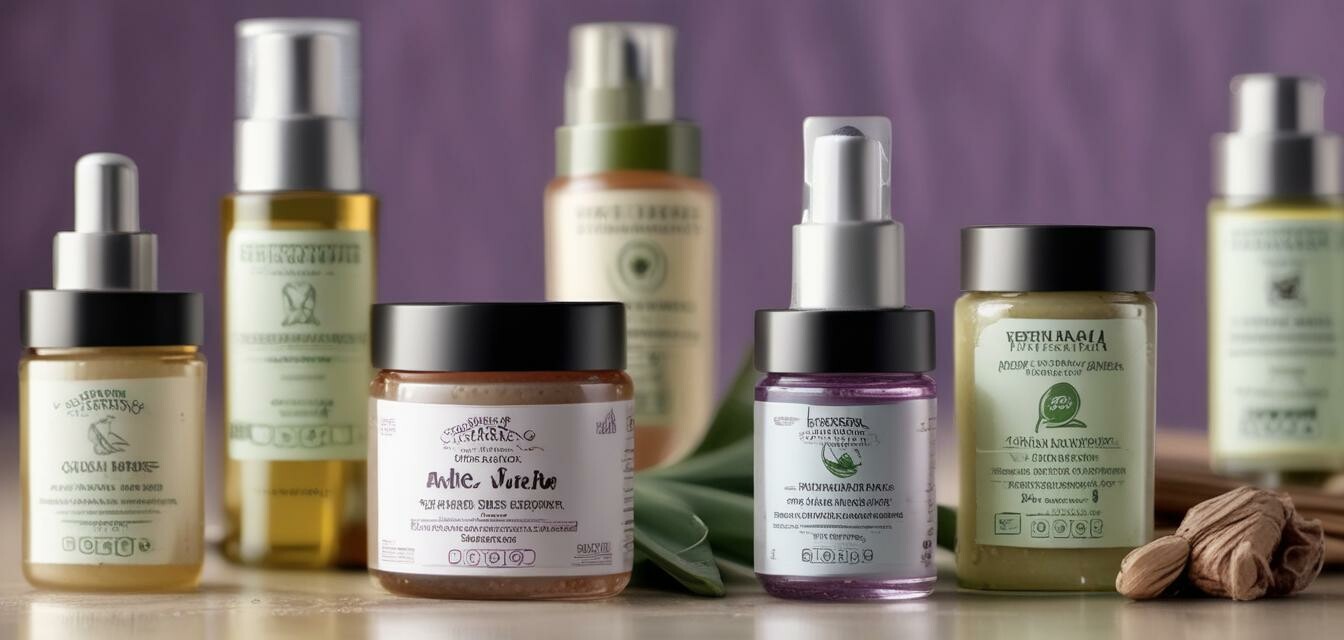
Decoding Labels: What to Look for in Organic Products
Key Takeaways
- Understanding organic labels can help you choose better skincare products.
- Look for recognized certifications and ingredient transparency.
- Marketing terms can be misleading; focus on the ingredient list.
- Research brands to ensure they align with your values on sustainability.
- Not all organic products are created equal; be an informed consumer.
As consumers, we are often inundated with choices, especially in the realm of skincare. With the rise of organic products, it becomes crucial to understand what these labels imply. This guide aims to assist you in decoding labels, ensuring you select the most suitable organic skincare options without falling prey to marketing gimmicks.
What do organic labels mean?
Organic labels are designed to signal that the product meets specific standards, often revolving around the farming practices used for its ingredients. However, it's essential to grasp the nuances behind these terms:
- 100% Organic: Products that contain only organic ingredients.
- Organic: Products containing at least 95% organic ingredients.
- Made with Organic Ingredients: Contains at least 70% organic ingredients, but the remainder may be conventional.
Identifying trusted certifications
Merely claiming "organic" isn't enough; look for certifications that verify a product's claims. Some well-known certifications include:
| Certification | Description |
|---|---|
| USDA Organic | The most recognized organic certification in the U.S., ensuring stringent organic standards. |
| European Union Organic | Similar standards as USDA, confirming products adhere to EU guidelines. |
| Cosmos Organic | A certification that covers organic and natural cosmetics, ensuring sustainable practices. |
| Leaping Bunny | Indicates cruelty-free products that are not tested on animals. |
Understanding ingredient lists
The ingredient list can reveal much about the product's purity and effectiveness. Here’s what to look for:
- Natural Ingredients: Favor products that list natural ingredients you can recognize. Common organic ingredients include aloe vera, olive oil, and shea butter.
- Avoid Harmful Additives: Stay clear of parabens, sulfates, and synthetic fragrances.
- Full Disclosure: Brands should list all ingredients, allowing you to make informed decisions.
Marketing terms to watch out for
Many brands use enticing language to market products. Here are some terms to be cautious of:
- Natural: This term can be misleading and doesn't necessarily mean organic.
- Hypoallergenic: No standard definition exists, so proceed with caution.
- Dermatologist Tested: This does not guarantee that the product is effective or safe for all skin types.
- Non-Toxic: While appealing, the term is largely unregulated.
Researching brands
When selecting organic skincare products, take the time to research the brands thoroughly. Check their commitment to sustainability and ethical practices. Look for:
- Brand Mission: Does the brand prioritize sustainability and environmental ethics?
- Customer Reviews: Genuine feedback can provide insights into product performance and ingredient transparency.
- Research and Development: Brands that invest in R&D often come up with innovative and safe formulations.
Conclusion
Decoding organic skincare labels is essential for making informed choices that align with your values and skin needs. By understanding what labels mean, identifying certified products, and avoiding marketing traps, you can enhance your skincare routine with genuine organic products. Always prioritize ingredient transparency and choose brands that resonate with your ethical beliefs.
Pros
- Enhances the effectiveness of your skincare regimen
- Promotes sustainability and environmentally friendly practices
- Reduces potential exposure to harmful chemicals
Cons
- Higher cost compared to conventional products
- Limited availability in some areas
- Can be subject to misleading marketing claims
Additional Resources
For more guidance on choosing organic skincare products, check out our detailed guides on:


